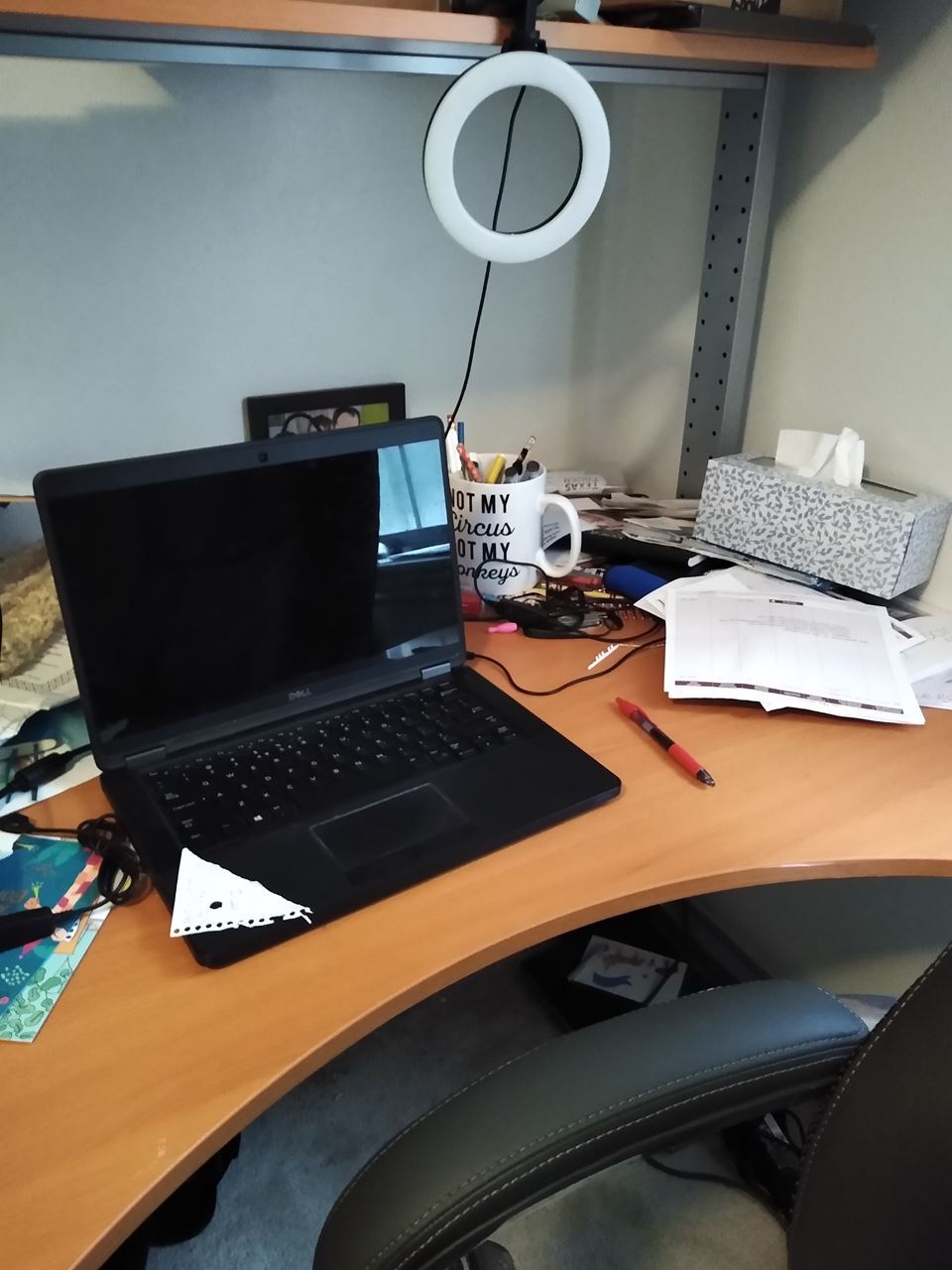 School name: Texas A&M University
School name: Texas A&M University
Type of school: super large public R1 PhD granting
School locale (including state and country): Texas, USA
How many years have you taught psychology? 23
Classes you teach: Undergraduate: Psychological Aspects of Human Sexuality, Organizational Psychology, Introductory Psychology; Graduate: Foundational graduate course in Organizational Psychology; Seminar on Occupational Health and Work Stress; and Seminar on Commitment
Specialization (if applicable): industrial-organizational
Average class size: undergraduate: 100 (human sex, organizational) – 200 (intro); graduate: 8
What’s the best advice about teaching you’ve ever received? When I was going through teacher orientation in graduate school, Sandy Goss Lucas showed several videos of instructors who were VERY different and all were considered excellent. She said to be yourself, care about your students, and know the material--there’s no one right way to be a good teacher.
What book or article has shaped your work as a psychology teacher? Mr. Rogers Neighborhood—the old TV show.
Briefly tell us about your favorite lecture topic or course to teach. Psychological Aspects of Human Sexuality is my favorite course. Its super interesting and also feels very important in our society.
Briefly describe a favorite assignment or in-class activity. I learned this one from my colleagues in Women’s and Gender Studies and began implementing it in my human sex course: let the students set the class ground rules. On the second day of class, I set the first two ground rules, which is that all adult consensual sexual behavior is acceptable and that we respect all people. From there, I ask the students to either get into small groups to discuss other rules (pre-pandemic) or to write some ideas in paper (during pandemic). Then they nominate rules to the class (one at a time), followed by discussion and modification, and then we agree as a group to adopt the rule. I’m not surprised at the consistency across courses—like some form of “people are going to tell some stories here, don’t retell them to others outside of class for your entertainment and definitely do not share identities.” But I am surprised by the nuances that different classes bring each semester. Then I include the class rules on the syllabus quiz (open syllabus/open notes).
What teaching and learning techniques work best for you? Lots of discussion, often based on an interesting video. I do both small group (2-4 people) discussions as well as whole class discussions, and both seem useful.
 What’s your workspace like? Big desk top, very cluttered; usually have a running list of things that need to get done on a paper to my right.
What’s your workspace like? Big desk top, very cluttered; usually have a running list of things that need to get done on a paper to my right.
Three words that best describe your teaching style. Positive, organized, humorous
What is your teaching philosophy in 8 words or fewer? It has evolved since I started teaching Human Sexuality about 8 years ago. Now it is: model acceptance, laugh lots, trust students’ mutual care
Tell us about a teaching disaster (or embarrassment) you’ve had and how you dealt with the situation. The most embarrassing thing I’ve said—although it’s 100% a reasonable description—is the time I described the internal vaginal structure and how it is normally “deflated” or “collapsed” when it is not engorged, but when it is engorged the fluids provide more structure and so it is more “inflated” or “stands up like a cylinder or a canister.” Then I said—here it is—the vagina is like a bounce house. How did I deal with it? I hid behind the white board, then posted to social media where everyone got a good laugh.
What about teaching do you find most enjoyable? Student learning and self-discovery. Sometimes it is about their career paths and lifelong goals, sometimes its about their identities, sometimes something else entirely. Knowing that I am a small part of their personal progress toward becoming who they are going to be, or their better understanding of themselves, is worth the effort.
What is something your students would be surprised to learn about you? I went to poetry camp as a high school student, as part of a summer arts institute in Oklahoma.
What are you currently reading for pleasure? With my family: The Nevermoor Series by Jessica Townsend; for myself: The Murderbot Diaries by Martha Wells, Wayfarer series by Becky Chambers, Veronica Speedwell series by Deanna Raybourn
What tech tool could you not live without? My phone—gotta DUO authenticate into everything!
What is your hallway chatter like? What do you talk to colleagues about most (whether or not it is related to teaching/school)? Hallway chatter is usually about (a) research, (b) graduate student questions/concerns/progress, (c) our kids, (d) big picture university politics/programs/questions, and (e) from 2012-2018, the TV show Scandal.
Has your teaching changed because of the Covid19 pandemic? If so, how? (positive and/or negative changes) Yes, and I think for the better! I lectured less. I standardized deadlines (e.g., a deadline every week at exactly the same time every week). I switched to online, weekly, open book/notes quizzes instead of in-class, closed books/notes, every few weeks tests. The shorter format was because I worried that there would be a change to COVID protocols at the time of a test and it would make everything complicated. (And in Texas, we had the deadly freeze in February 2021, so it did happen—classes cancelled, people didn’t have power, etc.) The online was convenience, although setting it up was not! And it turned out that open book/notes didn’t result in radically different distribution of scores than closed books/notes. I’m keeping all of these changes.
